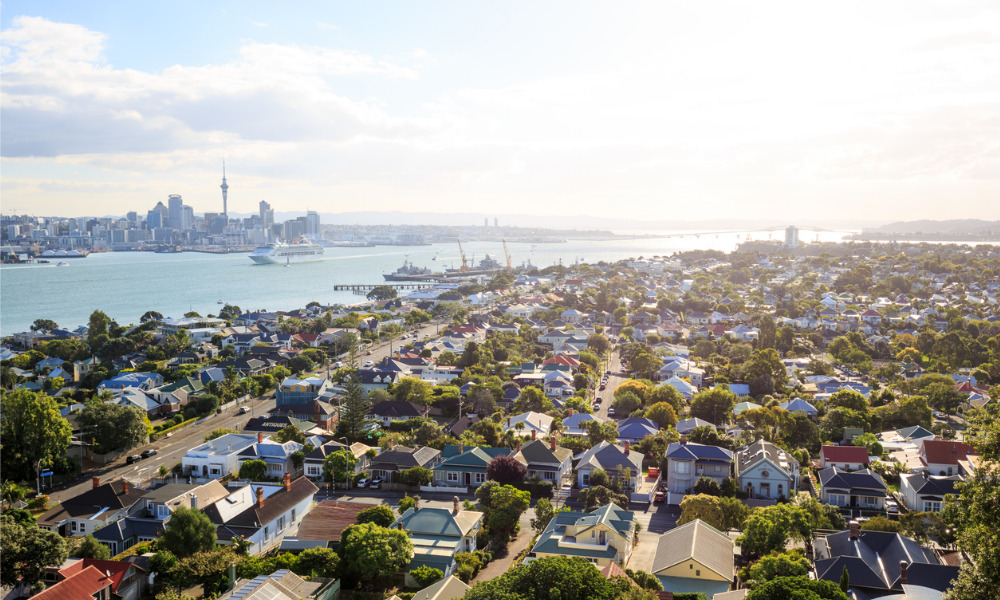But affordability will remain a major concern

A Reuters poll has predicted a halt to soaring house prices in New Zealand this year, with Australia following suit in 2023 as expected higher interest rates rein in the two housing markets that are among the least affordable in the world.
Read more: Falling house prices offer some relief for hopeful first-home buyers
A multi-year boom in house prices based on near-zero interest rates has provided homeowners with record piles of equity, but is pushing the dream of homeownership further out of reach for first-home buyers, especially those on lower incomes.
Both Australia and New Zealand saw house prices racking up double-digit gains, but more so in NZ, where prices rose by nearly 30%, making that property market the least affordable among OECD nations, Reuters reported.
But wages failing to keep pace with living costs, plus the added burden of three interest hikes since October from the Reserve Bank of New Zealand with more on the way, is anticipated to slam the brakes on the market.
According to a recent Reuters poll of property market analysts, New Zealand average home prices dropped about 1% this year and were expected to climb 1.5% in 2023 and 2.7% in 2024.
Read next: Mortgage payments surge past rent in New Zealand
“Prices can’t go up forever... pandemic-era policy stimulus sent prices into the stratosphere and (now) we are already seeing the housing market slow down in New Zealand pretty quickly,” Jeremy Couchman, senior economist at Kiwibank, told Reuters. “But affordability is still a major concern... prices are expected to fall a little; still, it’s a big stretch to pull together a deposit for first-home buyers. It is going to be difficult for them, unfortunately.”
New Zealand’s average home price breached the NZ$1 million mark for the first time. When asked to describe the level of New Zealand house prices on a scale of 1 to 10, from extremely cheap to extremely expensive, the median response was 9. For Auckland, it was 10.
“We're not talking about large falls in house prices for 2022, so I don’t expect it to become a buyer’s market,” Mike Jones, senior economist at ASB Bank, told Reuters. “But the balance of power is expected to shift away from sellers more towards buyers, as extra supply comes on stream, and rising interest rates put a big dent in housing demand.”
Read next: Mortgage rates to rise after OCR hike
In Australia, where prices have nearly doubled since the global financial crisis of 2007-09, another 6.7% increase is expected this year, due to record-low interest rates, but that fast pace of house price appreciation was predicted to end come next year and drop 5%.
“The 20%-plus gains in house prices over the past year won't be repeated in 2022... In 2023, we see prices falling modestly as higher mortgage rates start to bite,” said Adelaide Timbrell, senior economist at ANZ.
Another Reuters poll predicted that Australia's central bank would raise interest rates for the first time in a decade in the third quarter, slightly earlier than previously thought.



